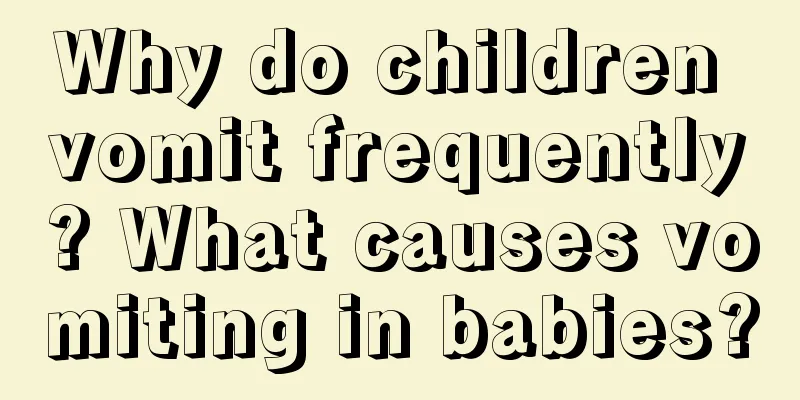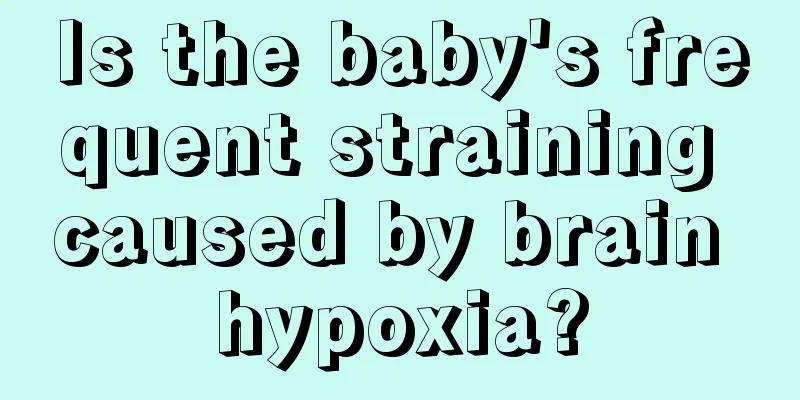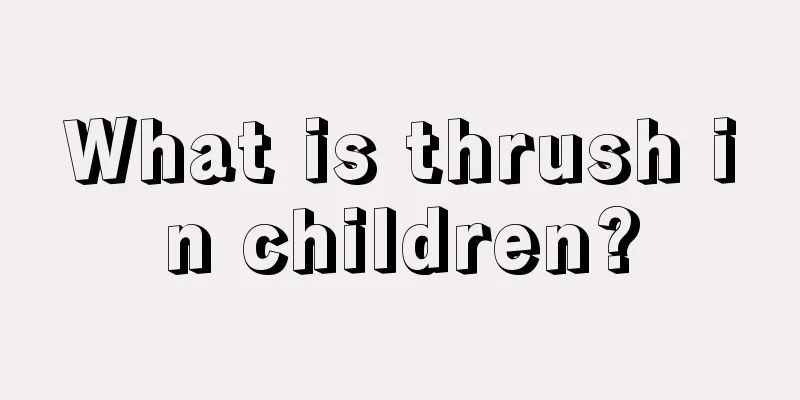Why do children vomit frequently? What causes vomiting in babies?

|
Vomiting and diarrhea are common in children, but some children vomit frequently, which should attract the attention of parents. The most common reason is intestinal bacterial infection. Timely examination and treatment are required to eliminate bacteria in time to make the baby healthier. 1. Causes of vomiting in babies Usually the intestines are infected by bacteria, which may be foreign or internal to the baby's intestines. It has the ability to protect itself against bacterially contaminated intestines and the ability to resist infection, which is a self-protection function. It manifests itself in the baby's sudden vomiting for one to two days, often accompanied by fever, diarrhea and other symptoms. If the child is generally in good spirits, there is no need to worry. Bacterial infections take some time to recover, usually two or three days, and most require treatment. Generally, when there is a bacterial infection, we must use some antibacterial drugs to inhibit the bacterial infection and eliminate the bacteria. Only in this way can the child's gastrointestinal tract develop well and get rid of the interference of this disease. In addition, the child's digestive function will slowly recover. 2. Three types of vomiting in children: 1. Galactomy is common in infants under six months old, especially newborns. This is related to a horizontal stomach, relaxed cardiac sphincter, tense pyloric sphincter and improper feeding, and is manifested as a small amount of milk regurgitating into the mouth or overflowing from the mouth. Generally, the disease can be cured by improving feeding methods or with age. The second is the regurgitation phenomenon. Due to the strengthened movement of the mandibular and pharyngeal muscles, the gastric contents flow back into the oral cavity. This phenomenon is more likely to occur in infants over 6 months old, and is often accompanied by abnormal mental state, leading to malnutrition and physical development disorders. 2. Common vomiting: Nausea often occurs before vomiting, followed by vomiting one or several times. Continuous or repeated vomiting is pathological and is often seen in gastrointestinal infections, overeating and recurrent vomiting. 3. Projectile vomiting: Children do not have nausea symptoms before vomiting, and a large amount of gastric contents are suddenly ejected through the mouth or nose. It is mostly caused by pyloric obstruction, gastric torsion and increased intracranial pressure. 3. When a child vomits severely, parents need to seek medical advice: If the child is vomiting severely or has diarrhea, is in a bad mental state, or has a high fever, then you need to go to the emergency room. Why do we need to go to the emergency room? Because while the child is waiting for treatment, a long waiting time can be dangerous for the child, so in this case, we should go to the emergency room. After the emergency room, if the child has diarrhea, bring fresh stool, the last stool, preferably within two hours. In the hospital, the doctor wanted to examine him. There are two types of diarrhea, infectious and non-infectious. In this case, infectious diarrhea must be ruled out to facilitate the doctor's diagnosis. In addition, be sure to tell the doctor in detail what happened during the illness, whether there were any leftovers, leftover milk, or leftover fermented fruit, or some rice or meat. Some children drink broth, and the broth went bad without your knowledge and was not given to the child. It is also necessary to consider whether the child has come into contact with patients with intestinal infectious diseases, such as enteritis or dysentery, whether these patients have eaten together or had close contact, and whether the parents have intestinal infectious diseases. If so, it is important to provide the information to the doctor so that the doctor can use it as a reference when making the diagnosis. |
<<: How to treat malnutrition in children effectively
>>: Treatment of childhood obesity, parents must read
Recommend
What to do if your child has a low-grade fever
Having a fever does make people feel very uncomfo...
Causes of dry stool in children
Do you know what kind of disease is dry stool in ...
Why do babies always fart?
Everyone knows that farting is a very normal beha...
What will happen if a child's amblyopia is not treated?
The biggest harm to vulnerable groups is that it ...
What are the blood-enriching dietary therapies for children?
When talking about anemia, everyone’s first react...
What should babies with telangiectasia pay attention to in their daily lives?
My friend's child is 7 months old. I found a ...
About the dietary treatment of wind-heat cold in children
Children are very susceptible to wind-heat colds ...
What are the symptoms of ADHD in children?
What are the symptoms of ADHD in children? This p...
What medicine should children take for fever and vomiting?
It is very common for children to have a fever, w...
How to tell if a baby has dull eyes
We all know that the healthy growth of babies con...
Can neonatal rickets be cured?
Neonatal rickets is a relatively common disease. ...
What to use for bathing children with eczema
Children's skin is relatively delicate and th...
What to do if your one-year-old baby has a stomachache
Infants have low immunity, incomplete development...
Methods for regulating the spleen and stomach in children
Regulating the spleen and stomach is not just a m...
Two months old baby has bloodshot eyes
Babies do not have the ability to act on their ow...









